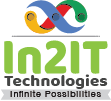Irrespective of the industry or size, digital transformation has become an essential component of all businesses across the world. Following COVID-19, businesses have had to adapt to a new working landscape and new customer demands, thus propelling more companies to harness cloud and automation tools. Incorporating automation tools such as AI (including generative AI, responsible AI and edge AI), blockchain and NFTs will aid businesses in transforming their operations, improve customer experience and maintain a competitive edge.
Capitalising on automation tools
Automation, from hyper-automation to generative AI, responsible AI and edge AI, is a hot topic, which is why it has become one of the major technologies to go mainstream in the past few years. Today, product and service offerings in the automation space come in all ‘shapes and flavours’, depending on whether you are a small, medium or micro enterprise (SMME) or a large-scale enterprise.
When considering automation, many may reflect on how the pandemic previously catalysed the need for the global workforce to adapt to a ‘new normal’. The results of this shift are still visible in the post-pandemic era in terms of how we work and collaborate. Consumer behaviour has also subsequently been impacted by the pandemic in the way that customers experience products and services. Since the onset of COVID-19, automation has actually helped enterprises, especially large enterprises, expedite their digital transformation journeys, which has ultimately led to a digitally transformed workforce.
We are now seeing more and more digital native organisations, which are a combination of a human and digital workforce. Digital native organisations are emerging due to an increase in cloud adoption, which has become standard for not only large organisations, but also small-scale enterprises. These organisations are now able to incorporate empowered workflows, best practices and artificial intelligence (AI) into their processes. However, a defining differentiator is how well these organisations (and employees) are able to utilise these automation tools and technologies when engaging with both suppliers and consumers. This is the cornerstone for a business to stay relevant and competitive.
The evolution of automation tools
Although already entrenched in many businesses, one of the key technology platforms in digital transformation is the adoption of cloud, and quite often they offer state-of-the-art digital capabilities bundled as a standard offering. In the future, we will see the convergence of various cloud types (like PaaS, SaaS, IaaS, among others) into hyper-digital-industry-specific cloud platforms. This is foundational for building any digital business, with digital businesses incorporating a combination of digital technology and operating models, including DataOps and ModelOps, related to AI for accelerated development and delivery of products and services.
Automation innovations on the horizon
Looking forward, non-fungible tokens (NFTs) and the metaverse are predicted to cause even more of a stir in the tech industry and will continue to give rise to new products and offerings. These technologies will lead to changes in customer behaviour and will have an impact on how companies are entering into the market and serving their customers.
An example of how businesses can capitalise on these technologies and generate alternative income streams is through creating virtual experiences and events that have the potential to reach a global audience. During such events, companies can use NFTs as a means to incentivise consumer behaviour with exclusive access to virtual experiences, for example. This changes how businesses interact with their clients and increases a company’s potential to reach and appeal to new markets and a broader audience.
Furthermore, the metaverse gives companies a unique opportunity to find new ways to confirm and verify digital identities. Businesses can use NFTs to establish verifiable digital identities; this greatly decreases the chances of fraud and helps companies confirm that their customers are who they claim they are.
Another automation innovation is that of ‘digital humans’ – which are interactive, AI-driven representations that have some of the characteristics, personality, knowledge and mindset of a human. A digital human can be deployed across any environment, such as even having a virtual date in the metaverse.
The digital twin also plays a key role in business. With developments in the field of AI/machine learning (ML) and the advancement of advanced analytics, we will move from a single view of the customer to a digital twin of the customer. In a practical business context, this will enable organisations to interpret the customer better since it goes beyond just knowing the customer and rather predicting and prescribing their behaviour. While a digital twin of the customer may take three to five years or more to become mainstream, there is no arguing that its impact will be powerful.
Blockchain – always clinching the top spot
Blockchain technology continues to come out on top as the best performing automation tool over the years. Just a few years back, blockchain was considered a promising solution with limited mainstream use cases, while today, blockchain is not limited to just cryptos, but also in the case of NFTs and the metaverse.
Furthermore, blockchain is also a promising use case for decentralised identity (DCI), and as consumers are becoming more aware and demanding about their cyber identity and credentials, we anticipate seeing the utilisation of DCI going mainstream.
Many developing economies across Africa and Asia are benefiting from the digital economy, and apart from crypto, we are witnessing increased usage of digital wallet and paperless monetary transactions. Quite often these ecosystems leverage the power of blockchain.
Digital transformation is causing a major shift in how businesses conduct their operations and this is prompting organisations to adapt in order to thrive in today’s digital landscape. A big part of the transformation involves equipping employees with the necessary knowledge and skills to use new technologies effectively and in support of the businesses’ digital goals. It is important for organisations to be proactive in their efforts to prepare for digital transformation, as this will ensure efficiency, productivity and overall business success.
Share
Editorial contacts
